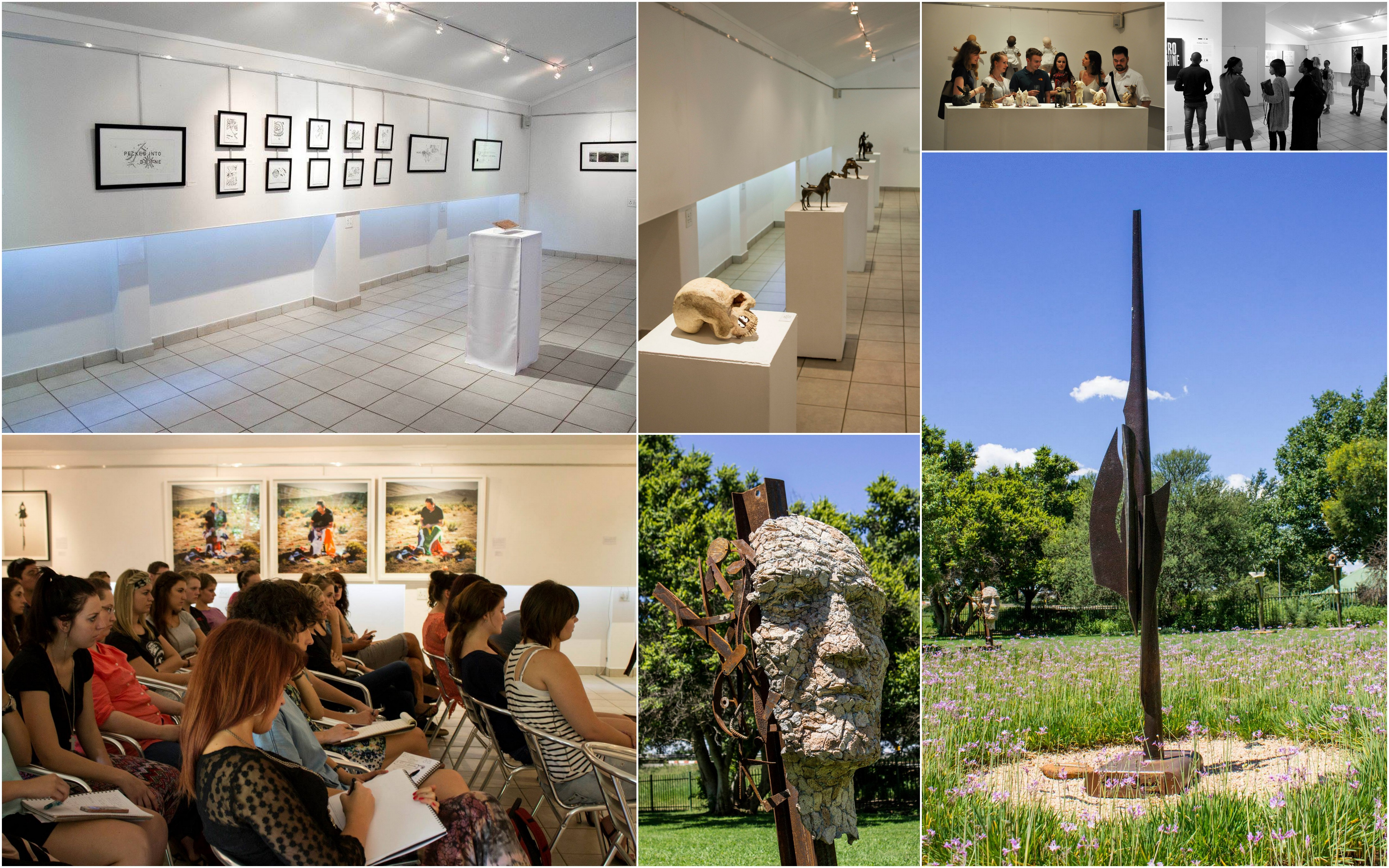The NWU Gallery, as part of the North-West University, consists of two gallery spaces. In 2002 the NWU Gallery, as it is known today, came into existence. This designated space, sharing a building with the the main university library and NWU Archive in Potchefstroom, boasts climate controlled storage facilities and a large exhibition space for temporary exhibitions. It has seen over a hundred exhibitions since its launch, from esteemed local and international artists alike. It also houses the NWU Art Collection artworks not currently on loan.

The desire to develop an art gallery and sculpture park in the NWU Botanical Garden saw light in 2007. The main goal and objectives of this venture was to create an educational and stimulating environment for visitors, showcasing young and upcoming artists, especially locally. Funds were secured for the renovation of an old unused laboratory into a designated gallery space in the botanical garden. The NWU Botanical Garden Gallery was opened in 2008 and is open during the summer season, as well as for smaller projects throughout the year.

The NWU takes pride over its art collection – the largest historical and contemporary collection in the North West province. The collection was initiated in 1972 when some of the 66 artists that participated in the institution’s first art exhibition donated artworks to the university. The cataloguing of the NWU Art Collection has been completed under the management and custodianship of the NWU Gallery with the appointment of a full-time curator in 2006. Looking Back While Moving Forward: The NWU Art Collection was published in 2013 (amongst various other publications), as a celebration and recognition of where the collection is and where it ought to go. The current art collection comprises of over 1200 artworks including paintings, sculptures, graphic works and some examples of craft work. It is currently being prepared for valuation.
The NWU Gallery has been using the arts, in all its forms, as a vehicle for discussion, transformation, development and most importantly, education. It frequently hosts and presents exhibitions, projects, talks and events on societal issues regarding race, gender, sexual orientation, language, identity and institutional culture. The exhibitions it presents also speak on various other topics, including, recently, environmental issues, human trafficking, stigmas surrounding albinism, sub-cultures, displacement, as well as other, more abstract, themes.
It is the vision of the NWU Gallery make art accessible to a broader audience by means of interactive processes. The NWU Gallery aims to establish such interaction through the study, preservation, conservation, exhibition, interpretation and development of its collection, as well as the preparation and presentation of temporary exhibitions through a programme of educational activities aimed at diverse audiences ranging from novice to expert. The overarching aim is to contribute towards the development of visual literacy within the North West province in general.
It is the NWU Gallery’s vision that visual arts become an essential part of the experience of all NWU students and to advance knowledge and appreciation of art, both now and in the future. As such, we strive to make the NWU Collection and our exhibitions accessible, both physically and intellectually, to our diverse audiences. Furthermore, the NWU Gallery has become a curatorial laboratory for students to gain practical experience within the arts industry through an internship and arts administration programme presented at the NWU Gallery. Its alumni continue to play key parts within arts administration, management and media.
The NWU Gallery plays an integral developmental role in its local community in the North West province. Rural communities, as well as areas outside of the traditional metropolitan city areas, don’t get the attention necessary to make a social difference by upliftment through education. The Gallery is ideally situated, in this regard, to do meaningful work.
The NWU Gallery actively works towards strengthening the network of artists in its province and fosters an open door approach to lending advice and partnerships to members of the community with regard to arts and culture projects and initiatives.
